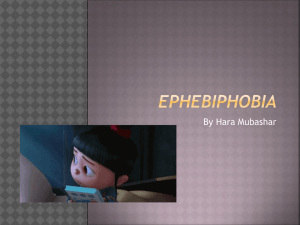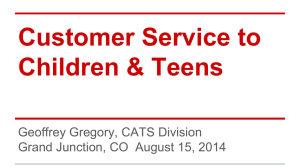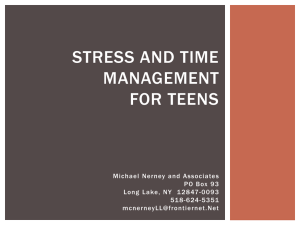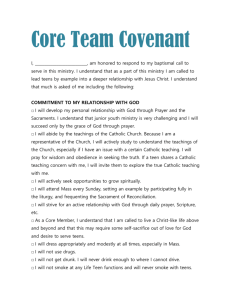Learning to Appreciate Your Teenager`s Music
advertisement
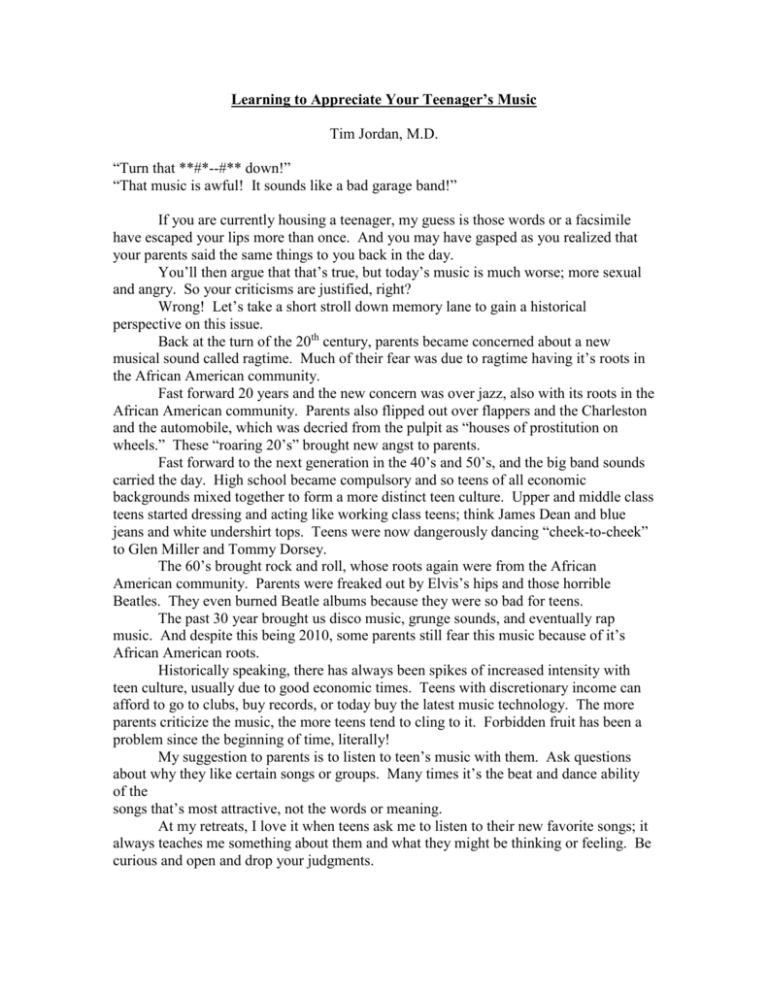
Learning to Appreciate Your Teenager’s Music Tim Jordan, M.D. “Turn that **#*--#** down!” “That music is awful! It sounds like a bad garage band!” If you are currently housing a teenager, my guess is those words or a facsimile have escaped your lips more than once. And you may have gasped as you realized that your parents said the same things to you back in the day. You’ll then argue that that’s true, but today’s music is much worse; more sexual and angry. So your criticisms are justified, right? Wrong! Let’s take a short stroll down memory lane to gain a historical perspective on this issue. Back at the turn of the 20th century, parents became concerned about a new musical sound called ragtime. Much of their fear was due to ragtime having it’s roots in the African American community. Fast forward 20 years and the new concern was over jazz, also with its roots in the African American community. Parents also flipped out over flappers and the Charleston and the automobile, which was decried from the pulpit as “houses of prostitution on wheels.” These “roaring 20’s” brought new angst to parents. Fast forward to the next generation in the 40’s and 50’s, and the big band sounds carried the day. High school became compulsory and so teens of all economic backgrounds mixed together to form a more distinct teen culture. Upper and middle class teens started dressing and acting like working class teens; think James Dean and blue jeans and white undershirt tops. Teens were now dangerously dancing “cheek-to-cheek” to Glen Miller and Tommy Dorsey. The 60’s brought rock and roll, whose roots again were from the African American community. Parents were freaked out by Elvis’s hips and those horrible Beatles. They even burned Beatle albums because they were so bad for teens. The past 30 year brought us disco music, grunge sounds, and eventually rap music. And despite this being 2010, some parents still fear this music because of it’s African American roots. Historically speaking, there has always been spikes of increased intensity with teen culture, usually due to good economic times. Teens with discretionary income can afford to go to clubs, buy records, or today buy the latest music technology. The more parents criticize the music, the more teens tend to cling to it. Forbidden fruit has been a problem since the beginning of time, literally! My suggestion to parents is to listen to teen’s music with them. Ask questions about why they like certain songs or groups. Many times it’s the beat and dance ability of the songs that’s most attractive, not the words or meaning. At my retreats, I love it when teens ask me to listen to their new favorite songs; it always teaches me something about them and what they might be thinking or feeling. Be curious and open and drop your judgments. Me personally, I don’t worry about the music teens listen to. What I do worry about is teens growing up in homes where their parents have a love-less marriage or divorce; homes where everyone feels distracted and disconnected. I do worry that they might listen to and watch the behaviors of politicians, professional athletes and Wall Street executives. And I worry about kids who grow up in poverty and homes with addictions and abuse. I hope these thoughts give you pause.


